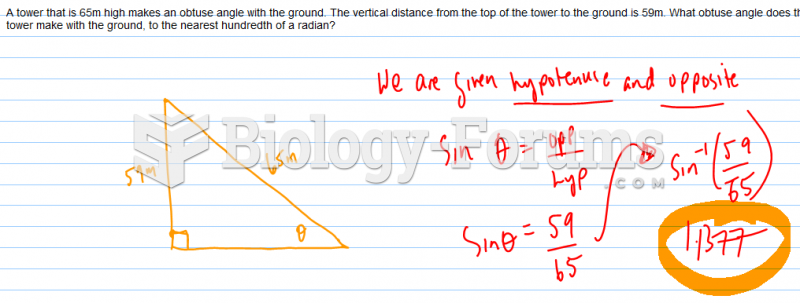Answer to Question 1
Resistance training has long been recognized as a means to build and maintain muscle mass, strength, power, and endurance. Additional benefits of resistance training, however, have also emerged. Progressive resistance training helps prevent and manage several chronic diseases, including cardiovascular disease, and enhances psychological well-being. Resistance training can also help to maximize and maintain bone mass. Even in women past menopause (when most women are losing bone), resistance training can improve bone density, especially in combination with adequate dietary calcium and vitamin D intake.
By promoting strong muscles in the back and abdomen, resistance training can improve posture and reduce the risk of back injury. Resistance training can also help prevent the decline in physical mobility that often accompanies aging. Older adults, even those in their 80s, who participate in resistance training pro- grams not only gain muscle strength but also improve their muscle endurance, which enables them to walk longer before exhaustion. Leg strength and walking endurance are powerful indicators of an older adult's physical abilities.
Resistance training builds muscle strength, muscle power, and muscle endurance. To emphasize muscle strength, combine high resistance (heavy weight) with a low number of repetitions (8 to 12). To emphasize muscle power, combine moderate resistance (light to medium weight) with high velocity (as fast as safely possible). To emphasize muscle endurance, combine less resistance (lighter weight) with more repetitions (15 to 20). Resistance training enhances performance in other sports too. Swimmers can develop a more efficient stroke and tennis players a more powerful serve when they train with weights, for example.
Answer to Question 2
A person who practices a physical activity adapts by becoming better able to perform that activity after each session. People shape their bodies by what they choose to do (and not do). Muscles cells and tissues respond to a physical activity overload by building, within genetic limits, the structures needed to perform it.
The muscles adapt and build only the proteins they need to cope with the work performed. Muscles engaged in activities that require strength develop more of the proteins needed for greater muscle mass; body builders have large, well-developed muscles. By comparison, those engaged in endurance activities develop more of the proteins needed to combat muscle fatigue; distance cyclists can pedal for many hours before fatigue sets in.







